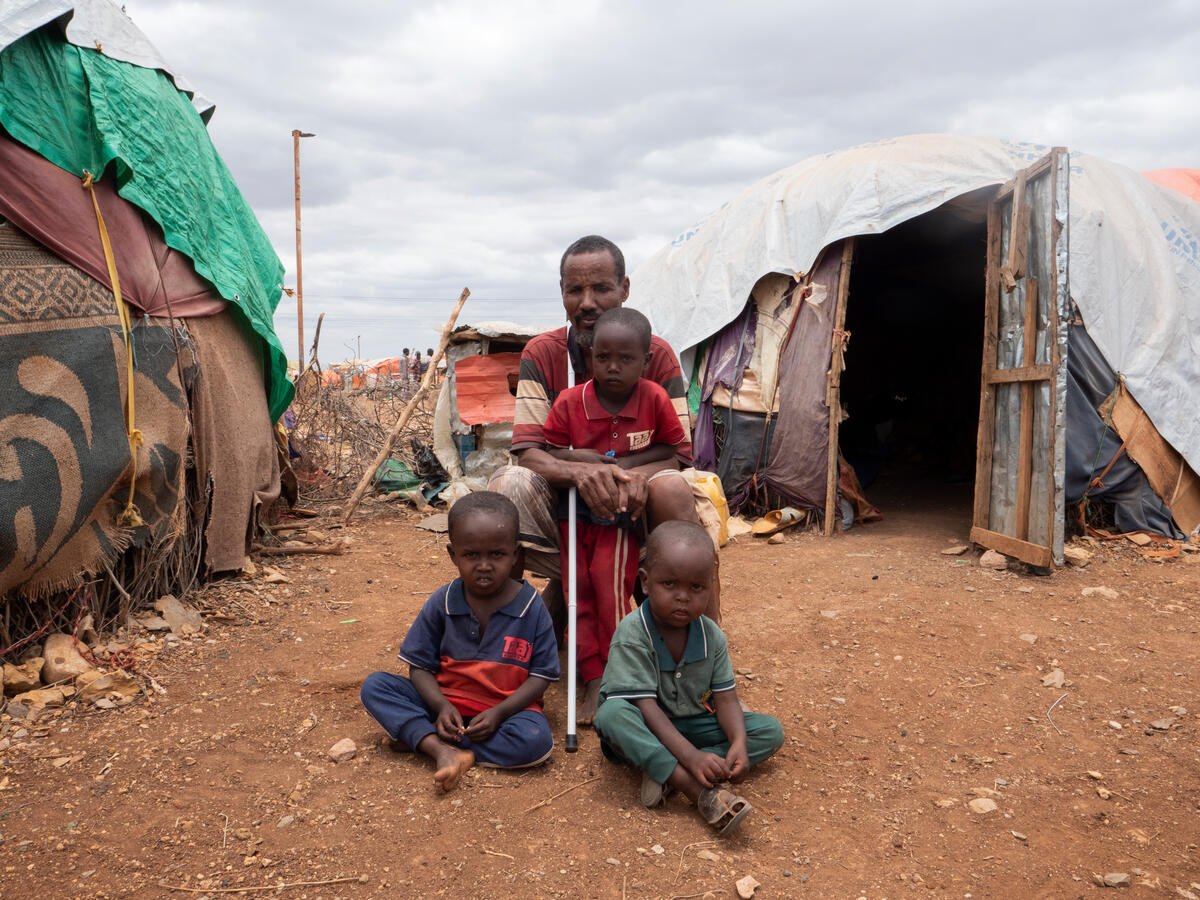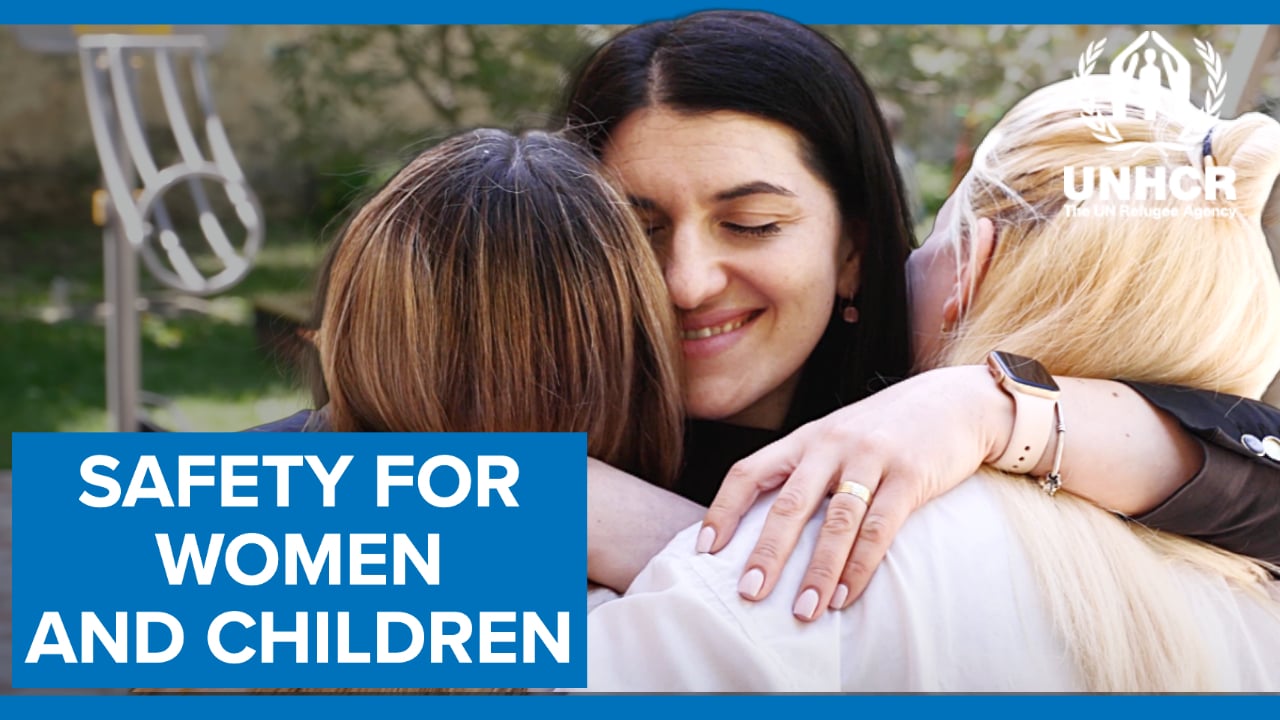'They killed my husband. If I'd stayed, they would have killed me too'

'They killed my husband. If I'd stayed, they would have killed me too'
Isaias* was a fisherman in a small town in central El Salvador. On a good day, he made enough money to put food on the table for his wife, Isabel, and their two children, aged three and nine – other days they would go hungry.
When members of a criminal gang demanded that he pay them thousands of US dollars, and gave him 24 hours to get it, it was an impossible task.
“They asked us for money we did not have,” explains Isabel. “If they didn’t get the money they said they would kill him, me, and our two little ones,” she adds.
The gang members gave Isaias until 6:30 p.m. the following day to raise the funds. “They called him and he told them he didn’t have it. They shot him dead in the street,” Isabel recalls.
On the day of Isaias’ wake, four men she did not know showed up, their faces covered with black ski masks. They pinned a note on the coffin that read “after him, we’ll go after the children.” They warned Isabel that if she reported the crime it would be worse for them all.
“If they didn’t get the money they said they would kill him ... They shot him dead in the street.”
“I decided to leave my country to save my children’s lives,” she says. Her neighbours put together a little money and helped her to apply for passports for herself and her daughter, Paty. “I got our passports in a week and we left,” she says. The couple’s son remains with his grandmother in El Salvador.
She crossed Guatemala by bus to reach southern Mexico. “With God’s help, I’m here,” says the 33-year-old, moments after making an asylum claim with Mexican authorities. She then registered with UNHCR, the UN Refugee Agency, who provide assistance and orientation at an adapted warehouse in a city a few kilometres from Mexico’s southern border.
Their plight is shared by a growing number of women, children and even entire families who are fleeing Honduras, Guatemala and El Salvador where gang violence – exacerbated by the COVID-19 pandemic and natural disasters – has driven them from their homes.
After a dip in the rate of arrivals in 2020 as COVID-19 spread across the region, the number of people fleeing the North of Central America is rising again. In the first quarter of 2021, Mexico’s Commission for Refugee Assistance, COMAR, registered 22,606 new asylum applications, nearly a third higher than the same period last year. March 2021 marked an all-time high for monthly asylum claims, as they reached 9,076.
Among those running for their lives is taxi driver Roberto, who abandoned Honduras in February with his wife, Norma, and four sons aged eight to 15 after receiving death threats from a criminal gang or ‘mara.’
“The gang demanded a weekly extortion payment, and this time I couldn’t pay. They wanted it from one day to the next,” the 38-year-old explains, gently cradling his eldest boy, Antonio, who has cerebral palsy, in his lap. “They told me that if I didn’t pay, they would kill me.”
“We had to choose between buying food, milk, nappies and vitamins for the kids, or paying the extortion.”
It was no idle threat. Two of Roberto’s coworkers had been shot to death for failing to make payments, he says. Keeping up with the weekly demand was becoming impossible, Norma, 36, explains.
“We had to choose between buying food, milk, nappies and vitamins for the kids, or paying the extortion,” she says.
They packed a bag that night and left the next day at 6 a.m. on a two-day bus ride north to Mexico. “Everything we had, we left behind,” Norma says.
Half of new arrivals are from Honduras. Central Americans, including claimants from El Salvador, Guatemala and Nicaragua, together with those from Honduras, account for two thirds of the people who have sought protection this year in Mexico, with smaller numbers from Cuba, Haiti and Venezuela. As the numbers climb, UNHCR’s head of office in Tapachula, Kristin Riis Halvorsen, says a greater number of families are seeking asylum in Mexico itself.
“In previous years, most people would pass through Mexico headed to the US to seek asylum. Now many, especially families, see Mexico as an option,” she says.
“When you see that there are family groups of up to three generations, it’s an indication that the situation that people experience back home has left them really no hope of being able to remain. Even with the hardship of moving and even with the dangers, it is the best shot they have at saving their own life.”
“Even with the hardship of moving ... it is the best shot they have at saving their own life."
At the current rate, Mexico is on track to match or surpass the record number of asylum claims in 2019. To respond to rising asylum numbers, UNHCR has helped boost COMAR’s registration and case processing capacity. It has also scaled up its own programmes to help asylum seekers while their claims are being evaluated, and to help recognized refugees integrate into their host communities.
After her first contact with UNHCR staff, Isabel received a follow up assessment to explain her rights in international law, and determine the support she and Paty need, from shelter, to medical attention, counseling, education, financial aid and help with integration.
After claiming asylum, Roberto, Norma and their young family have a room in a secure, 300-bed shelter newly built by UNHCR in southern Mexico, where Antonio has received medical attention, and his brothers can join classes at the centre’s ‘Escuela Sin Fronteras,’ or ‘School Without Borders.’ Roberto, meanwhile, has temporary work packing fruit, which he says is “a good start.”
Where the families will make their future is not yet clear. But Isabel, Roberto and Norma are adamant that returning home is not an option for them.
“They killed my husband and they threatened me,” says Isabel, sitting on the sweltering patio of the registration centre. “If I’d stayed, they’d have killed me too.”
“If we go back,” Roberto tells Norma, “You’d be a widow, without the father of your children.”
*Names and other details changed for protection reasons.








